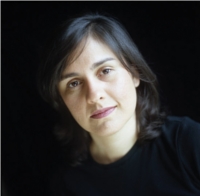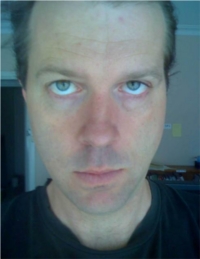2009 MWF authors – another 2
Posted by Melbourne Writers Festival
Two more authors, as announced in the last MWF e-bulletin:
Kamila Shamsie

Kamila Shamsie
Shortlisted for Orange Prize for Fiction in 2009, Kamila Shamsie will be one of our international guests at the festival. Kamila was born in 1973 in Pakistan and is the author of four previous novels: In the City by the Sea, Kartography (both shortlisted for the John Llewellyn Rhys Prize), Salt and Saffron and Broken Verses. In 1999 she received the Prime Minister’s Award for Literature and in 2004 the Patras Bokhari Award – both awarded by the Pakistan Academy of Letters. Kamila now lives in London.
Bolder and more ambitious than her previous novels, Burnt Shadows is a major novel, set against the backdrop of war, of intersecting lives of people from different nations and cultures. If you are a fan of The Kite Runner by Khaled Hosseini, A Fine Balance by Rohinton Mistry, or The Inheritance of Loss by Kiran Desai you will enjoy Kamila Shamsie.
An absorbing novel that commands, in the reader, a powerful emotional and intellectual response Kamila Shamsie is a writer of immense strength.
Salman Rushdie
Jeff Sparrow

Jeff Sparrow
Jeff Sparrow is a well known face in literary Melbourne (and the photo has have given us does not do him justice!) Currently the editor of the literary journal, Overland, he first came to our attention with an intriguing slant on Melbourne, Radical Melbourne: A Secret History and Radical Melbourne 2: The Enemy Within. Both books should be on every Melbournian’s bookshelf. He is also the author of Communism: A Love Story (shortlisted for the 2007 Colin Roderick Award) and, his most recent book, Killing: Misadventures in Violence.
Ninety years after the First World War, the discovery of the mummified head of a Turkish soldier – a bullet-ridden souvenir brought home from Gallipoli by a returning Anzac – launched Jeff on a quest to understand the nature of deadly violence. How did ordinary people – whether in today’s wars or in 1915 – learn to take a human life? Was it hard to kill another person or was it terrifyingly easy? What did war do to soldiers to make hoarding a human head seem normal, even necessary? The questions lead Jeff on a journey through history and across the US, talking to veterans and slaughtermen, executioners and academics about one of the last remaining taboos. Compassionate, engaged and political, Killing takes us up close to the ways society kills today, in a prolonged meditation on what violence means, not just for perpetrators but for all of us.
Posted on 30 June 2009, in Author info, MWF info and tagged Broken Verses, Communism: A Love Story, In the City by the Sea, Jeff Sparrow, Kamila Shamsie, Kartography, Killing: Misadventures in Violence, Overland, Radical Melbourne: A Secret History, Salt and Saffron. Bookmark the permalink. Leave a comment.
Leave a comment
Comments 0